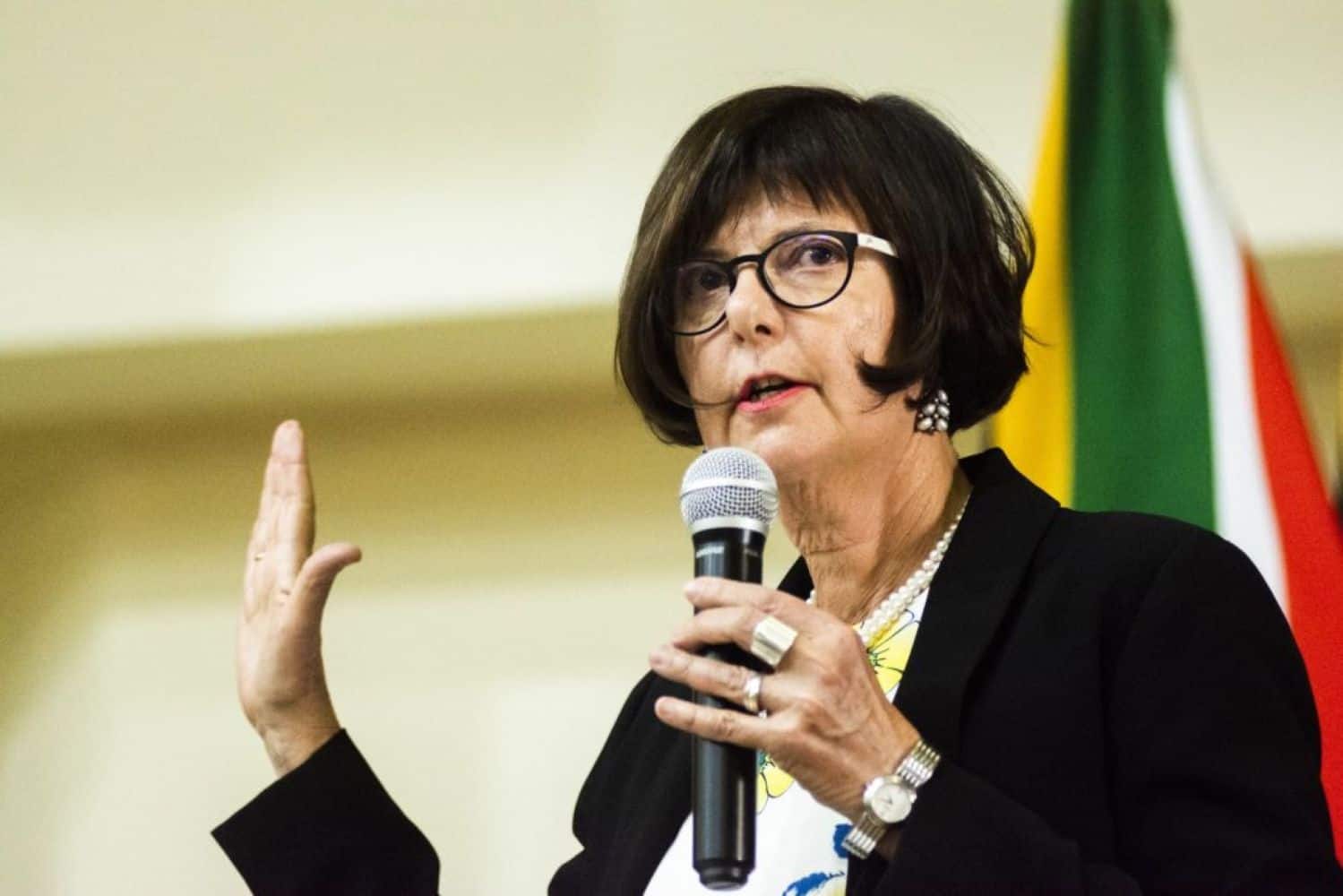BEE players say they were not consulted over minister’s decision to renew 25-year fuel storage operator agreements with international companies.

Black economic empowerment (BEE) players in the fuel sector have challenged Minister of Transport Barbara Creecy’s decision to renew 25-year leases with global oil companies at the Transnet Island View Precinct (IVP) in Durban.
Several BEE players say they have been unfairly excluded from bidding to operate the fuel storage facilities.
The precinct handles about 70% of SA’s fuel imports and it was widely expected that when the current leases expired they would be put out to tender.
Instead, Creecy invoked broad ministerial powers under Section 79 of the National Ports Authority Act, which allows her to bypass the normal licensing procedures in the national interest.
“The directive goes against South Africa’s economic transformation,” said Zakhele Madela, chair of the Association of Economic Intervention Forum, speaking recently to the portfolio committees on Trade, Industry and Competition, and Transport.
“It is an unfair exclusion, and we want a review of the process to give 25% to black traders.”
Foreign investment versus ‘foreign domination’
Creecy previously told the committees that she wanted to move away from the short-term leases of the last decade that had discouraged investment in port fuel infrastructure.
BEE players accused her of misleading the committees when she said there had been consultation with industry stakeholders on the Section 79 directive. They claimed there was only a meeting and not actual consultation.
“We have a problem with the process, not the act,” said Anda Bici, director at Capricorn Energy & Gas. “Section 79(02) was not observed. It requires consultation. The process was procedurally defective, [and] undermines the legality and legitimacy of the act.
“We feel the minister’s decision was irrational and entrenches foreign domination.”
Bici added that the Section 79 directive has been misimplemented and has left the BEE companies marginalised and frustrated.
ALSO READ: SA’s just energy transition: Why investing in gas is a bad idea
‘Start from scratch’
Another industry representative, Bongani Phillip, told the committees that the minister’s actions violated government BEE policies and wants the process to be started from scratch and done correctly.
“It is anti-black, anti-transformation and unconstitutional,” he said.
“We demand 50% state allocation, 25% for BEE. The current 15% for the state to distribute to black players is symbolic and ineffective.”
As Moneyweb previously reported, the Central Energy Fund (CEF) has been allocated 15% of the precinct’s storage facilities as a start, increasing to 30% over the next decade.
The CEF is charged with facilitating access by emerging black players who are technically and financially sustainable to these storage facilities.
One industry player who asked not to be named told Moneyweb the fuel business is low margin and requires high volumes to be successful.
“BEE players are supposed to fall under the CEF. How do you as a BEE player achieve the volumes necessary for financial success when all you have is 15% of the CEF’s allocation, divided among numerous companies.”
ALSO READ: High-speed Jozi to Durban train plans back on the radar
Mantashe also unhappy
Minister of Mineral and Petroleum Resources Gwede Mantashe is also unhappy with the arrangement, saying it was a “misnomer” to expect the state to share 15% with black players in the industry.
“Oil and gas are the future in this country,” he said.
“That is where the growth will come from and transformation cannot exclude the state.”
One purpose of the CEF’s involvement is to break the monopolies currently in control of the fuel sector and make space for marginalised players.
ALSO READ: Acsa jet fuel master plan to be ready by April – how much does OR Tambo receive a day?
Portfolio committees unhappy too
Portfolio Committee on Trade, Industry and Competition chair Mzwandile Masina said his committee is firmly on the side of the aggrieved BEE traders and supported transformation.
“Transformation is our core fundamental. We are going to bring together everybody affected by this process. It is our responsibility to resolve the existing contradictions.”
Donald Selamolela, chair of the Portfolio Committee on Transport, encouraged the aggrieved parties to exhaust parliamentary processes before considering approaching the courts for intervention. “We are here on your behalf. When matters can be ventilated in this parliament, let’s allow the parliamentary process before approaching the courts,” he said.
Both committees want further engagements on the issue to find a permanent solution.
ALSO READ: National Petroleum Company’s bold plan to secure SA’s energy security
Creecy stands by her decision
Asked to comment, Creecy’s office respond that the minister’s position remains unchanged from the statement issued in September, where she invoked Section 79 of the National Ports Act to renew the leases of Bidvest Tank Terminals, H&R South Africa, Chemoleo, Unico TEC, Astron Energy, Vopak Terminal Durban, Engen, TotalEnergies, Sapref and Sasol.
“The Central Energy Fund will also act as a third-party access point for emerging black players who were previously limited by a lack of access to Island View infrastructure,” Creecy said in her September statement.
“In my view, renewing leases at the Port of Durban Island View will ensure fuel supply security for South Africa, provide certainty to tenants, and encourage long-term investment in the infrastructure. Bringing new players into the industry will not only expand participation but also ensure that all South Africans have a stake in the port operations.”
This article was republished from Moneyweb. Read the original here.






![More than 60 scholar transport vehicles impounded in Lenasia [VIDEO]](https://media.citizen.co.za/wp-content/uploads/2026/01/Lenasia-Blitz-300x200.jpg)